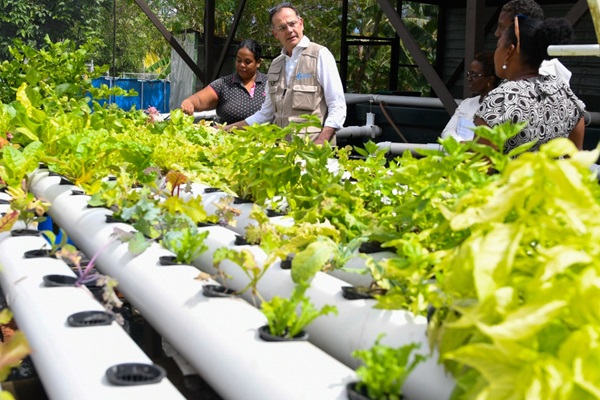
FAO Climate Finance Webinar Galvanizes Solutions for Agrifood Systems in the Caribbean
28/02/2024
With a growing need for investment to address climate impacts, the Food and Agriculture Organization of the United Nations (FAO), through its Subregional Office for the Caribbean (SLC), recently concluded a two-day webinar entitled ‘Adapting Caribbean Food Systems to Climate Change: Chal...

St Vincent and the Grenadines accelerates efforts to grow its hot pepper industry
28/02/2024
Building on the country’s plans to increase food production and trade, public and private sector stakeholders from Saint Vincent and the Grenadines have identified two important crops for further development over the coming years.
Dasheen, a prime crop in the country, was first sel...
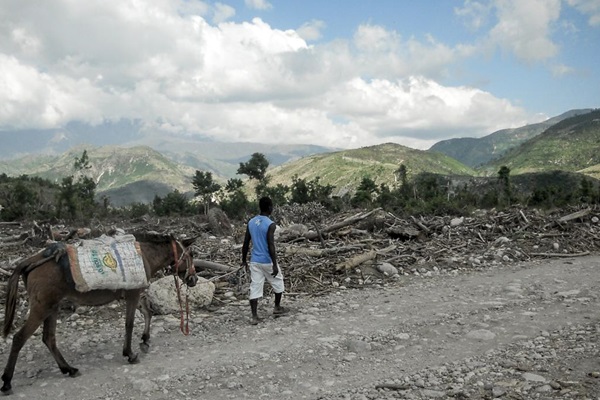
Haití: La escalada de violencia y las crisis económicas agravan la crisis del hambre
25/03/2024
Puerto Príncipe/Santiago de Chile - Haití está sumido en una crisis humanitaria que se agrava, con casi la mitad de la población enfrentándose a una inseguridad alimentaria aguda, según el último análisis de la Clasificación Integrada de la Seguridad Alimentaria (CIF) . ...
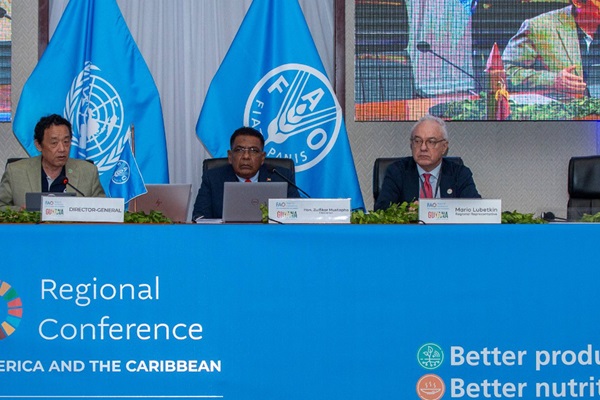
Los países de América Latina y el Caribe establecieron nuevas prioridades de la FAO en la región para transformar los sistemas agroalimentarios y garantizar seguridad alimentaria
21/03/2024
La 38 Conferencia Regional de la FAO para América Latina y el Caribe concluyó hoy con el apoyo unánime de los treinta y tres Estados miembros al Marco Estratégico 2022-31 de la FAO y a las cuatro prioridades que guiarán el trabajo de la Organización durante el próximo bienio.
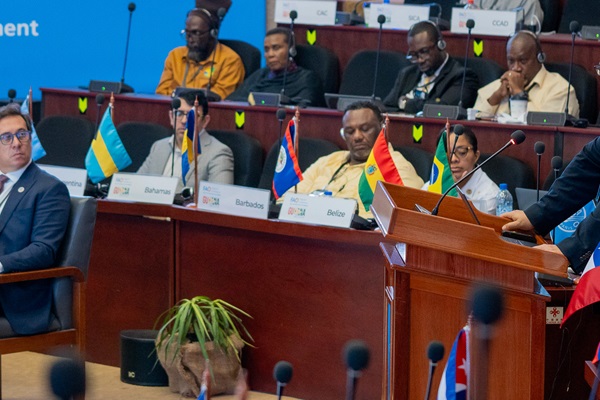
Conferencia regional de la FAO: La Amazonía y el Caribe se suman a la transformación rural inclusiva y resiliente de la iniciativa Mano de la Mano
21/03/2024
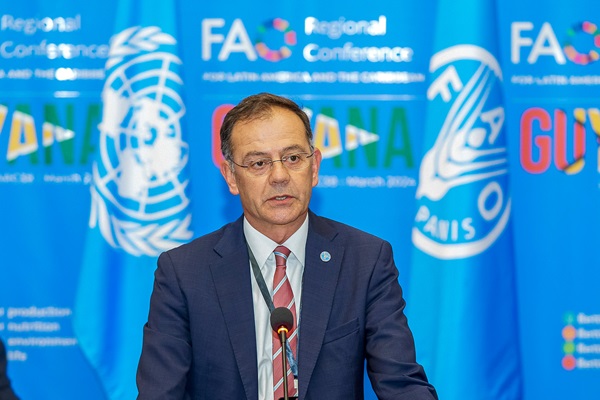
Conferencia regional de la FAO: América Latina y el Caribe traza el camino hacia una pesca y acuicultura sostenible para la seguridad alimentaria
20/03/2024
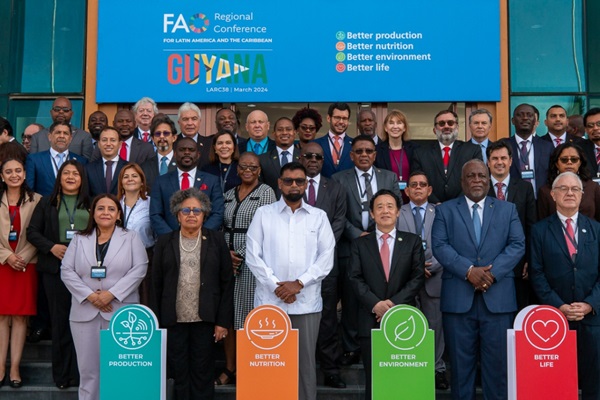
La 38 Conferencia Regional de la FAO para América Latina y el Caribe se inicia con una importante participación de Presidentes y Ministros de la Región
18/03/2024
.tmb-th600x400.jpg?Culture=es&sfvrsn=48d6d4e7_3)
Lunes 18: Comienza la Conferencia Regional de la FAO para América Latina y el Caribe
14/03/2024
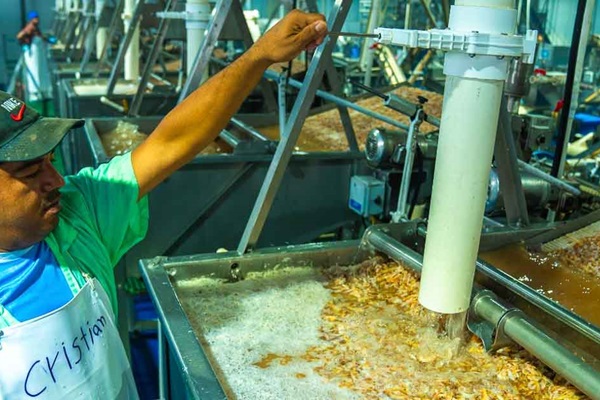
CRFM Continental Shelf Fisheries Working Group and EU-funded FISH4ACP initiative to collaborate on Atlantic seabob assessment
11/03/2024
A technical working group of the Caribbean Regional Fisheries Mechanism (CRFM)—the Continental Shelf Fisheries Working Group (CSWG)—will collaborate with the European Union-funded FISH4ACP project, private sector processors, and the Seabob Working Groups of Guyana and Suriname to c...
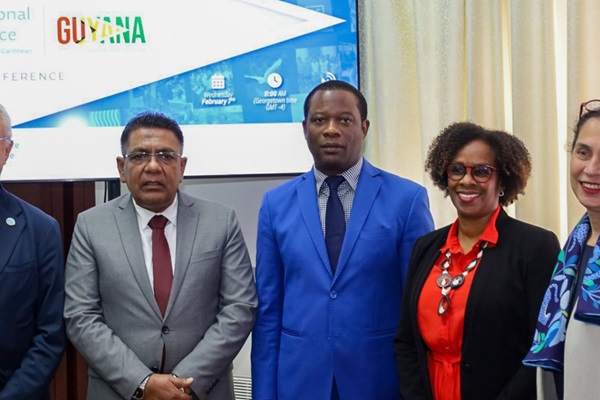
La FAO establecerá las prioridades de trabajo para América Latina y el Caribe durante la Reunión de Altos funcionarios de la Conferencia Regional
06/03/2024
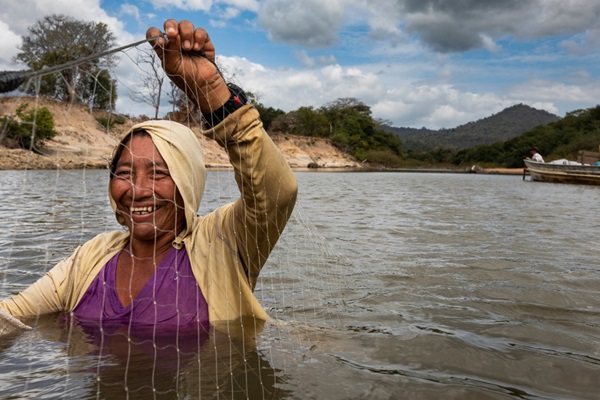
FAO movilizará US$ 8.15 millones para el empoderamiento de las mujeres rurales en América Latina y el Caribe
06/03/2024
La Organización de las Naciones Unidas para la Alimentación y la Agricultura (FAO), anunció la puesta en marcha de dos proyectos para abordar desafíos cruciales del cambio climático, la seguridad alimentaria y la igualdad de género en América Latina y el Caribe por un total de US$ 8.15 millone...
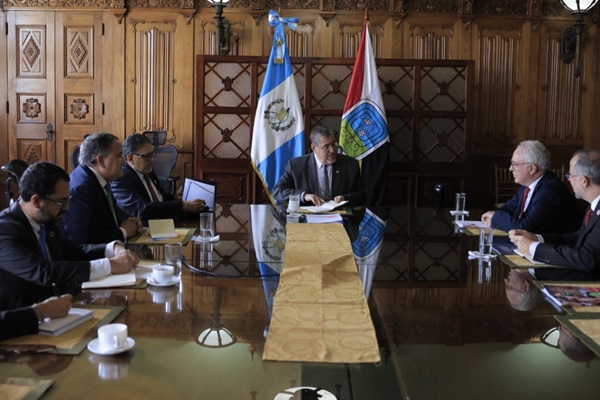
Reunión entre FAO y el Presidente de Guatemala fortalece el compromiso por la seguridad alimentaria y el desarrollo
05/03/2024
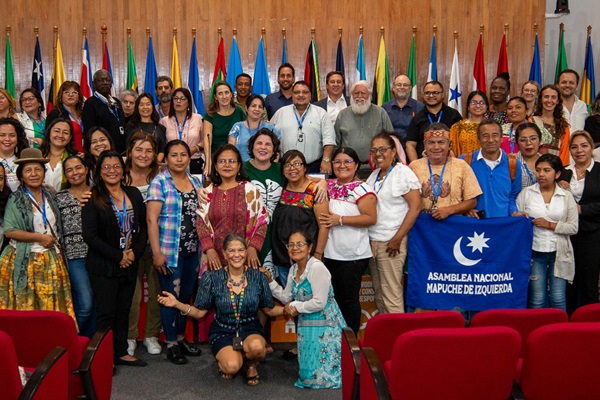
Actores no gubernamentales de América Latina y el Caribe debatieron sobre la transformación de los sistemas agroalimentarios en la antesala de la 38° Conferencia Regional de la FAO
04/03/2024
La Oficina Regional de la Organización de las Naciones Unidas para la Alimentación y la Agricultura para América Latina y el Caribe llevó a cabo una ronda de consultas a actores no gubernamentales como antesala a la realización de la 38° Conferencia Regional de la Organización LARC38.
A...
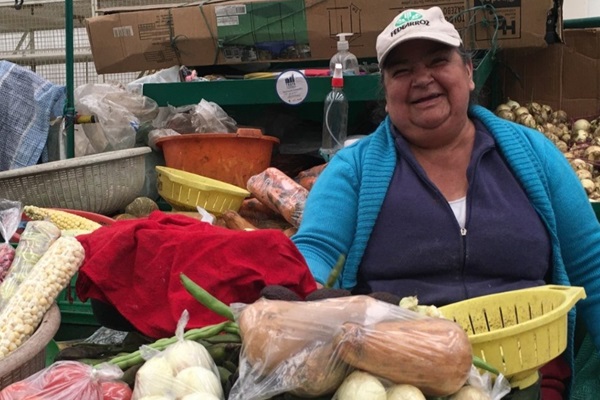
FAO lanza publicación que compila buenas prácticas en mercados tradicionales en América Latina y el Caribe
01/03/2024
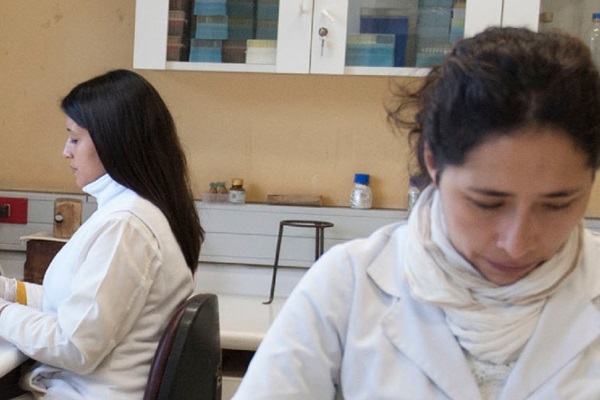
Bioinsumos: Oportunidades de inversión en América Latina
20/02/2024
En un momento decisivo, la agricultura de América Latina y el Caribe, que alberga la mitad de la biodiversidad mundial y sustenta a 1.3 mil millones de personas, debe enfrentar desafíos críticos.
Los efectos negativos del cambio climático, la creciente degradación del suelo y disminución...
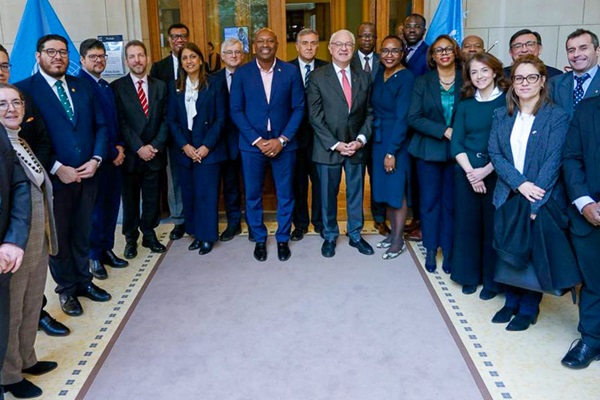
La FAO pide fortalecer las alianzas entre la región de América Latina y el Caribe y la Unión Europea para abordar la lucha contra el hambre y la malnutrición
20/02/2024
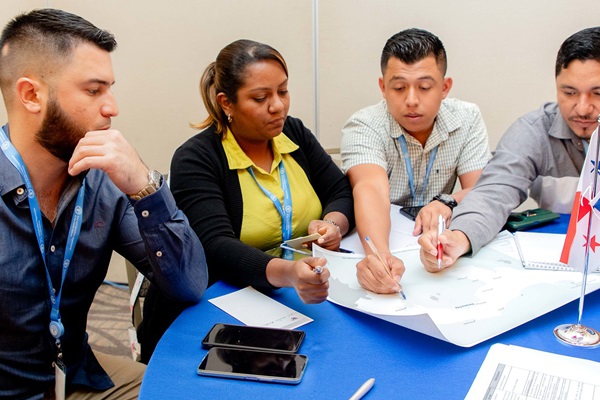
Equipos veterinarios regionales fortalecen sus estrategias para enfrentar emergencias zoosanitarias en Centroamérica
08/02/2024
Con miras a la protección, sostenibilidad y resiliencia de los sistemas agroalimentarios, entre el 6 y el 8 de febrero, la Organización de las Naciones Unidas para la Alimentación y la Agricultura (FAO), con el apoyo del Organismo Internacional Regional de Sanidad Agropecuaria (OIRSA), convoca...

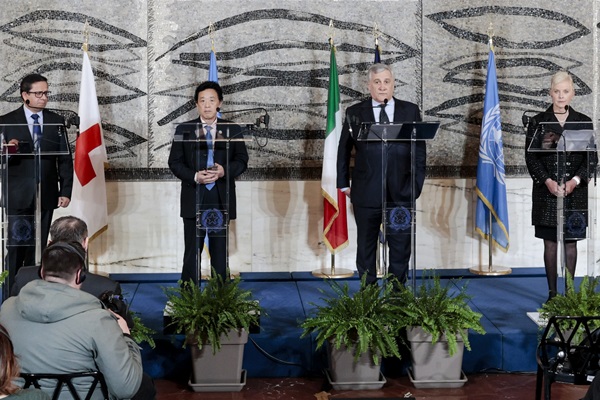
.tmb-th600x400.jpg?Culture=es&sfvrsn=e170a34f_3)
